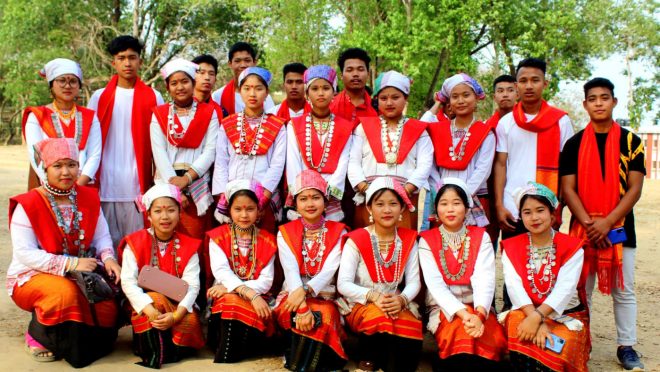International Day of the World's Indigenous Peoples: Indigenous lives, global silence
International Day of the World's Indigenous Peoples: Indigenous lives, global silence

The International Day of the World’s Indigenous Peoples is on 9 August. Every year the globe comes together to celebrate this day. A day proclaimed by the United Nations in 1994 to promote and protect the rights of Indigenous communities across the world.
Speeches echo, hashtags trend, and institutions pledge solidarity. But behind the veil of symbolic recognition lies a deeper, more painful truth. Indigenous peoples continue to face oppression, displacement, violence, and cultural erasure, whilst international institutions turn a blind eye and do nothing.
According to the UN, Indigenous people are those who are the first people to live in a particular place. The original population that first created a community on that land before other people came to live in, conquer, or colonise the area. People self-identify as indigenous. That means they decide for themselves whether they consider themselves to be indigenous.
There are more than 350 million indigenous people living in 90 countries. They represent 5,000 different cultures and speak the great majority of the thousands of languages that are spoken around the world today. Indigenous communities often have distinct beliefs, culture and customs. Many indigenous people still live in very close contact with the land, with a respect for and understanding of their natural surroundings.
Audrey Azoulay, AzoulayDirector-General of UNESCO stated that, “On this day, let us remember that Indigenous peoples are actors of change, guardians of natural resources, and carriers of unique worldviews, knowledge, and skills. We must protect their traditions and ways of life—while respecting their rights.”
However, the reality is far more grim and unjust. From the Inuit in the Arctic Circle to the Tuareg in the deserts of northern Africa, Indigenous tribes are not battling just for survival but for their territory, culture, humanity, and most importantly, for their recognition. Additionally, their lack of political representation, social safety, and economic clout prevents them from being recognised.
The Rohingya, a Muslim ethnic group indigenous to Rakhine State, are now a stateless ethnic minority. Over a million people have been stripped of citizenship, widespread massacres and mass rapes have occurred, and people have been forced into displacement; as a result, they fled to our country and seeking refuge in overcrowded camps in Cox’s Bazar. It was an intentional genocide by the Myanmar military.
You must be amazed to hear that Xinjiang is one of the most heavily surveilled regions in China, where Uyghur Muslims live. Praying and fasting during Ramadan and wearing religious clothes are intensively restricted. Even though children are getting separated from their parents and sent to state-run orphanages or boarding schools where they are introduced into Han Chinese culture, cutting them off from their ancestral identity. So at every stage, their fundamental human rights represent systematic violations.
And we all know what is going on in Palestine, particularly in Gaza. Since 7 October, 2023, over 60,000 Palestinians have been killed, 150,000 injured, and 1.9 million people have been displaced due to intense Israeli military operations. Now people are dying from hunger. Genocide is become a very casual thing. The international organisations watch, release statements of regret, and then comfortably slips back into diplomatic inertia.
Across Latin America, groups like the Mapuche in Chile are criminalised for reclaiming ancestral lands, while extractive industries exploit indigenous territories with state backing.
These circumstances are not happening only in South Asia, the Middle East, Africa, or Latin America but also in first-world countries like the United States of America, Canada, and Australia.
In the Global North, First Nations in Canada, Native Americans in the U.S., and Aboriginal Australians continue to face poverty, incarceration, and intergenerational trauma, and all these are rooted in colonial legacy.
These are not isolated cases. They form a global pattern, one of neglect, hypocrisy, and systemic failure. Despite having mechanisms such as the UN Declaration on the Rights of Indigenous Peoples (UNDRIP) and various international human rights treaties, real accountability remains elusive. These instruments are non-binding, and states routinely violate their provisions without consequence.
International bodies like the United Nations, International Criminal Court, and Human Rights Councils often issue strong words, but rarely back them with enforceable action. Political interests, economic alliances, and global power hierarchies silence justice.
It’s not ample to celebrate Indigenous heritage once a year if we continue to overpass the everyday violence these communities face. Legal protection, self-determination, reparative justice, and land rights cannot be replaced by cultural performances or symbolic gestures. On this International Day of the World’s Indigenous Peoples, let us ask ourselves:
What does “recognition” mean if it doesn’t lead to justice?
What are international laws worth if they serve the powerful and abandon the oppressed?
And how long will we continue to let states violate Indigenous rights without consequences?
Until meaningful change is achieved, August 9 will echo not recognition, but the deafening quiet of international inaction.


